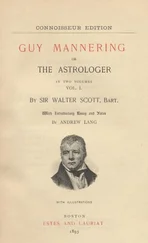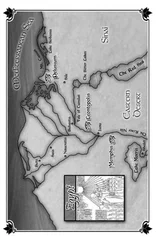“Warreven Stiller.”
“Raven.” There was no mistaking Temelathe’s voice, low and mellow as tempered chocolate. “How are you these days?”
“Well, thank you, mir,” Warreven answered, and added, knowing it would be expected, “I trust you’re the same?”
“Well enough, my son.”
Warreven made a face at the old endearment. It was traditional, meaningless, but it also held echoes of Temelathe’s comment at Aldess’s reinstatement—and was that what he wanted, introducing me to what’s-his-name, Kolbjorn, from Kerendach? Warreven wondered suddenly. And referring to me as his might-have-been daughter-in-law would be just one more way of re-minding me of old obligations. Of course, if it hadn’t been me who would become the wife, I might’ve been tempted, and Temelathe won’t have forgotten that, either. Temelathe never forgot anything, to the smallest detail, and Warreven was uneasily aware of memories, the child, the adolescent he had been, waiting to be invoked.
“But I’ll get to the point,” Temelathe went on, “and I do apologize for the haste of it. I’m told you want to withdraw your name from the election list.”
“I didn’t even know I was on it,” Warreven said, but Temelathe was still speaking, riding over his words.
“I know it’s not strictly speaking my affair, but with Brunwyf away in Luccem for the holiday, I thought I might be able to clear up the problem before it officially became one.”
“That’s kind of you, my father,” Warreven murmured, without the pretense of conviction.
“I’m not in fact clear what the problem is.” Temelathe’s tone sharpened suddenly, and Warreven imagined the full force of his glare directed at the monophone. “Your clan has seen fit to nominate you; it’s your obligation to serve.”
“I’m not qualified to be the seraaliste ,” Warreven said, with perfect truth. The clan seraaliste handled the sale of all harvested and gathered crops to the off-world brokers, and a man who notoriously couldn’t bargain in the markets was hardly an ideal candidate for the job. “Besides, there’s another nominee.”
“Æ, Raven, Daithef hardly counts as a candidate. Though I admit he’d suit me better than you in some ways.”
That was true enough: Daithef could be relied on to make a bad bargain, if only out of spite. “So why, my father, are you trying to talk me into running?”
There was a chuckle at the other end of the line. “Because what’s good for Stane isn’t necessarily good for Hara. And there’s money enough in the off-worlders that we can all share the profits.”
“True,” Warreven said dubiously; this was not the usual White Stane attitude. “But I’m still not qualified to be the seraaliste .”
“I think you’re underestimating your talents,” Temelathe said. “Ah, Raven, this is no way to talk, not through some machine. Come to the house tonight—we’re having a small dinner, nothing fancy. We can talk there.”
It was not really a request, and they both knew it. Warreven sighed—there had never been an easy way to refuse Temelathe Stane; once was more than most men managed—and said, “I’m honored, my father.” His tone was flat, contradicting the conventional words, and Temelathe chuckled again.
“It will be worth your while, Raven, I promise you.”
“But will it be worth yours, my father?” Warreven asked. “As you said, I’m not your ideal candidate.”
“Nor is Daithef,” Temelathe answered, voice suddenly sharpening. And then the anger was gone, smothered, and Temelathe was himself again. “I’ll expect you at seven—no, six-thirty. That will give us time to talk a little.”
“I’ll be there, my father,” Warreven said, and broke the connection. He looked up to see the others watching him over the wall of the cubicle and spread his hands in answer.
“You’re going to dinner,” Malemayn said.
“Of course.” Warreven looked at Haliday. “I didn’t want or plan this. You do believe me, Hal?”
There was a little pause, Haliday’s fierce green eyes fixed on him, and then, slowly, 3e nodded. “Even for you, Raven, this would be—baroque.”
Warreven smiled, reassured, and reached across to light his workstation. “Is there anything that absolutely has to be done by tomorrow?”
“Only the usual,” Haliday answered, and turned back to 3er own cubicle. “I’ll flip it to you. What happened with Chattan’s case?”
Malemayn stretched, the metal bracelets clattering down his arms. “Flip me copies, too, will you, Hal? We got Chattan his fees back, but the lead-judge continued the case. Wakelevedy said he’d send the voucher first thing in the morning.”
“And the minute Chattan gets the money, 3e’ll be off home,” Haliday said, bitterly. “I don’t suppose there’s any way we could hold onto the money until the next hearing.”
“No,” Warreven said, and sighed as a list of files filled his screen.
“This isn’t the case, Hal,” Malemayn said, not ungently.
“This is a case we could’ve won.” Haliday glared at the screen. “Who was the lead-judge? Archer Stane?”
Malemayn nodded.
“Damn the Stanes, singly and collectively, to all seven hells in succession,” Haliday said. Ȝe ran a hand through 3er short hair. “Even Archer would’ve had to give us this one. It was perfect, damn it, poor hard-working, modest-living halving from the Equatoriale gets tricked into whoring in Bonemarche, and by a reputable brokerage, no less—we couldn’t lose. And it would have called the whole structure of the trade into question, let everybody know that the White Stanes are backing it. So of course Archer continued it.”
“We won’t win this kind of case until we get somebody from Bonemarche to complain,” Malemayn said.
“And we won’t win this kind of case if it’s a Bonemarche whore complaining,” Haliday retorted.
It was an old argument, and Warreven looked back to his screen, jabbed halfheartedly at the list of files to open one at random. Over the last two calendar-years, the partnership seemed to have been spending more and more of its time dealing with the fallout of the off-world sex trade, with the full-time prostitutes and the part-time marijaks and marianjs who worked the harborside, and with the off-worlders and wry-abed indigenes who patronized them. Temelathe preferred to turn a blind eye to the business—as long as he got his discreet share of the bar and dance-house profits, he didn’t care who went there, or for what—but at the same time he had to stay on good terms with the Colonial Committee and the Interstellar Disease Control Agency, who existed to regulate trade. At the same time, most of the pharmaceutical companies, from the Big Six down to the smallest pony-shows, turned a blind eye to their employees’ thriving sideline in the residence and travel permits that were the other side of trade. And Hara was dependent on the pharmaceuticals for all of its hard-cash income. It was not, Warreven admitted silently, an easy situation for Temelathe, but it was a lot harder on the wry-abed.
Malemayn and Haliday were still arguing, voices low enough to ignore, and Warreven fixed his attention on the open file on the screen in front of him. It was an application-to-emigrate for someone named Destany Casnot, herm passing for male—a Black Casnot rather than a Blue, which made him distant kin; Casnot, like most of the large clans, was split between two Watches—and he paged quickly through the file, looking for the inevitable problems. The partnership didn’t get the easy cases; if this had been a straightforward emigration case, it would have gone to ColCom without the need for legal backing. Sure enough, the person sponsoring the application was listed as Sera Timban ’Aukai, who called herself Destany’s common-law wife. He knew ’Aukai, all right: all of the wry-abed did. She had for years managed an import service just off the Soushill Road, where indigenes looking for trade could sell or pawn traditional goods and find safe introductions. And now she was ready to leave Hara and wanted to take a current lover with her.
Читать дальше












